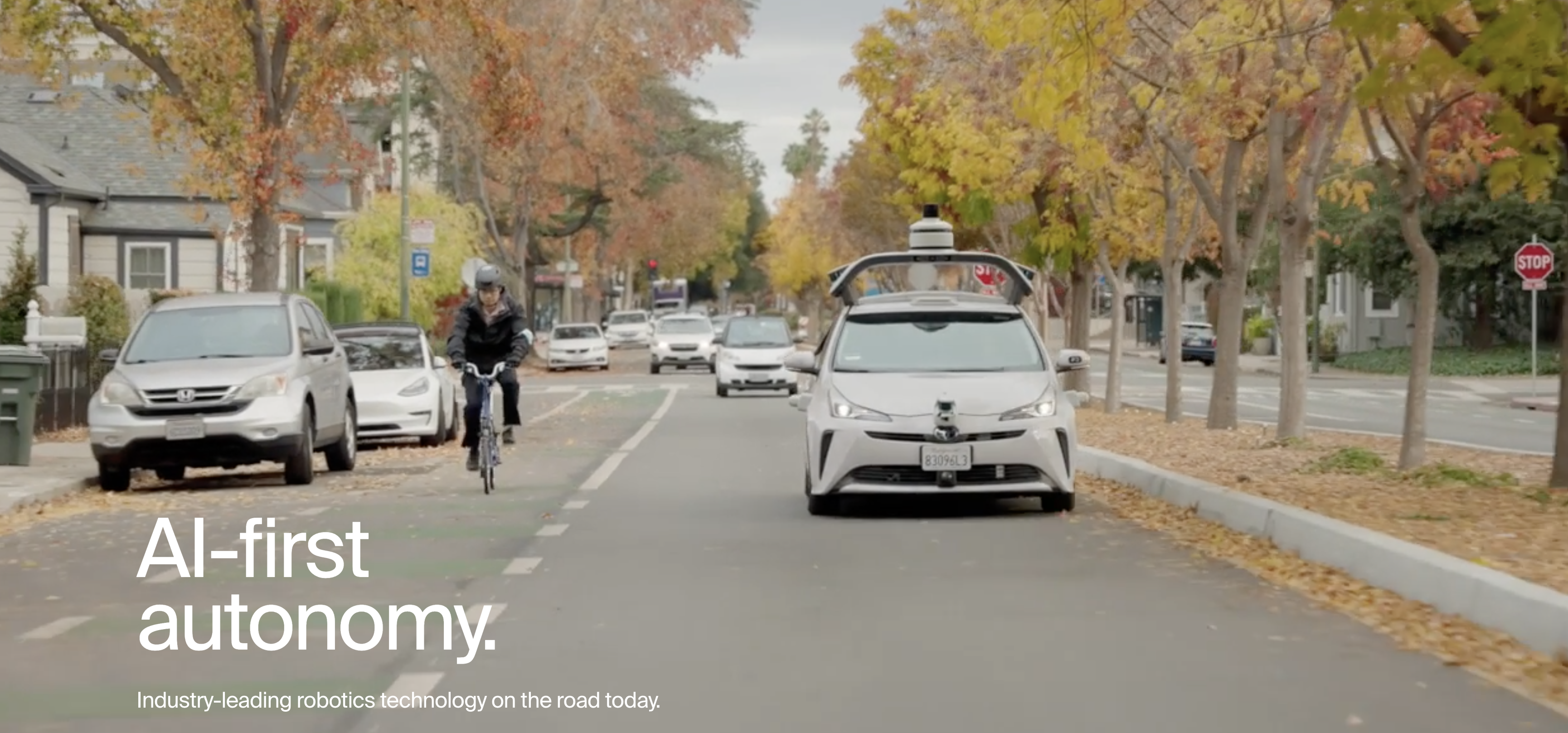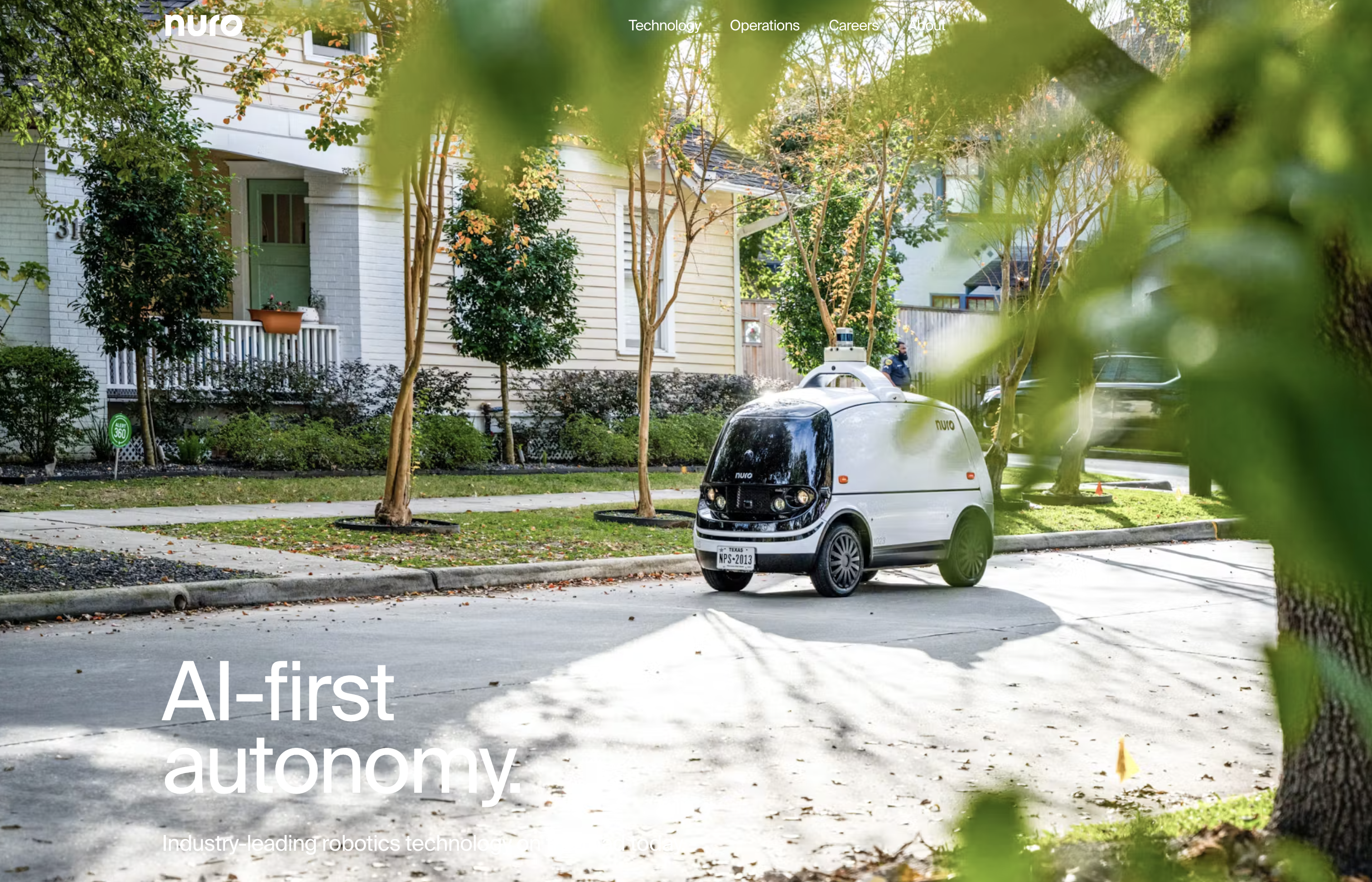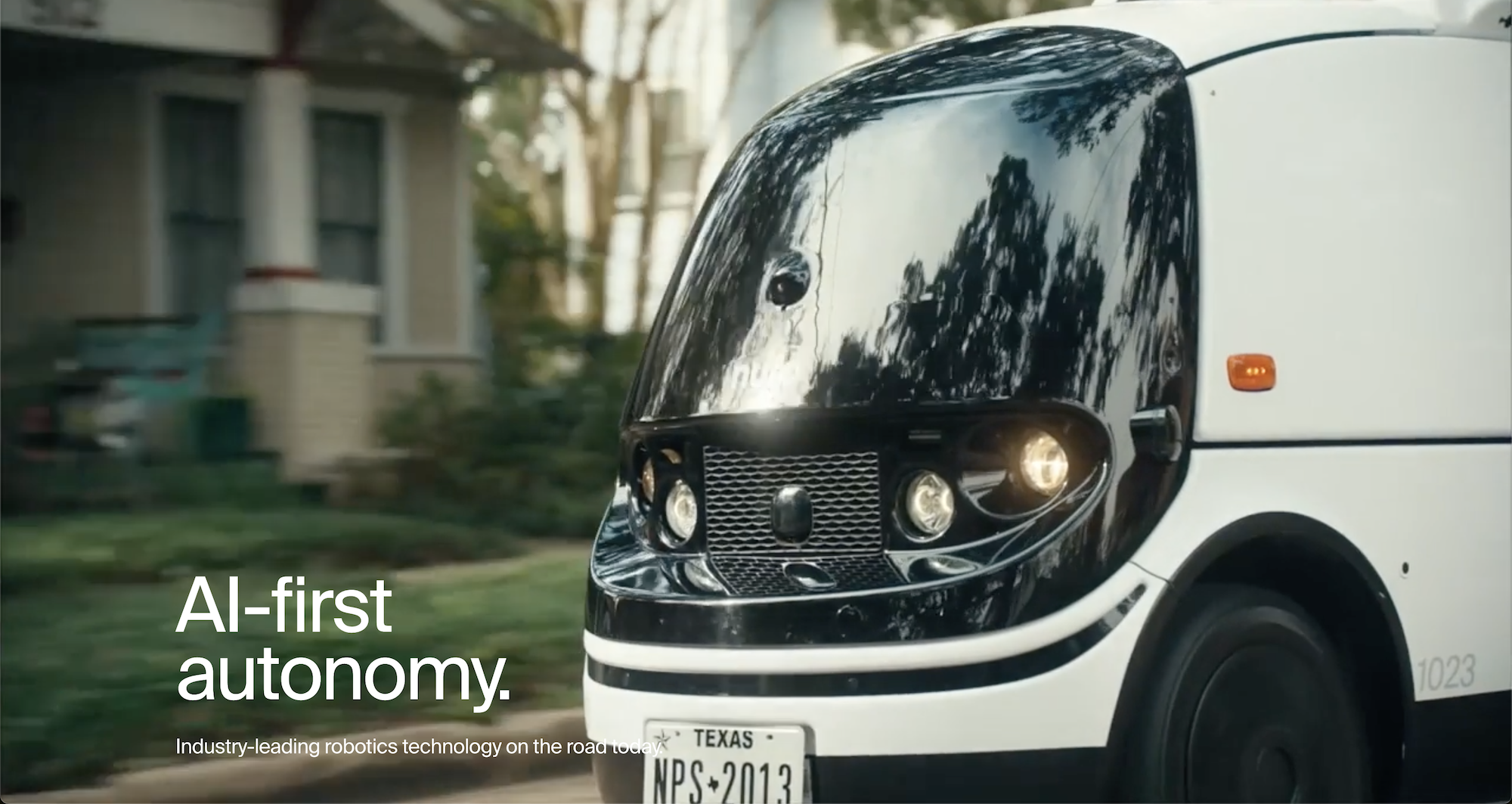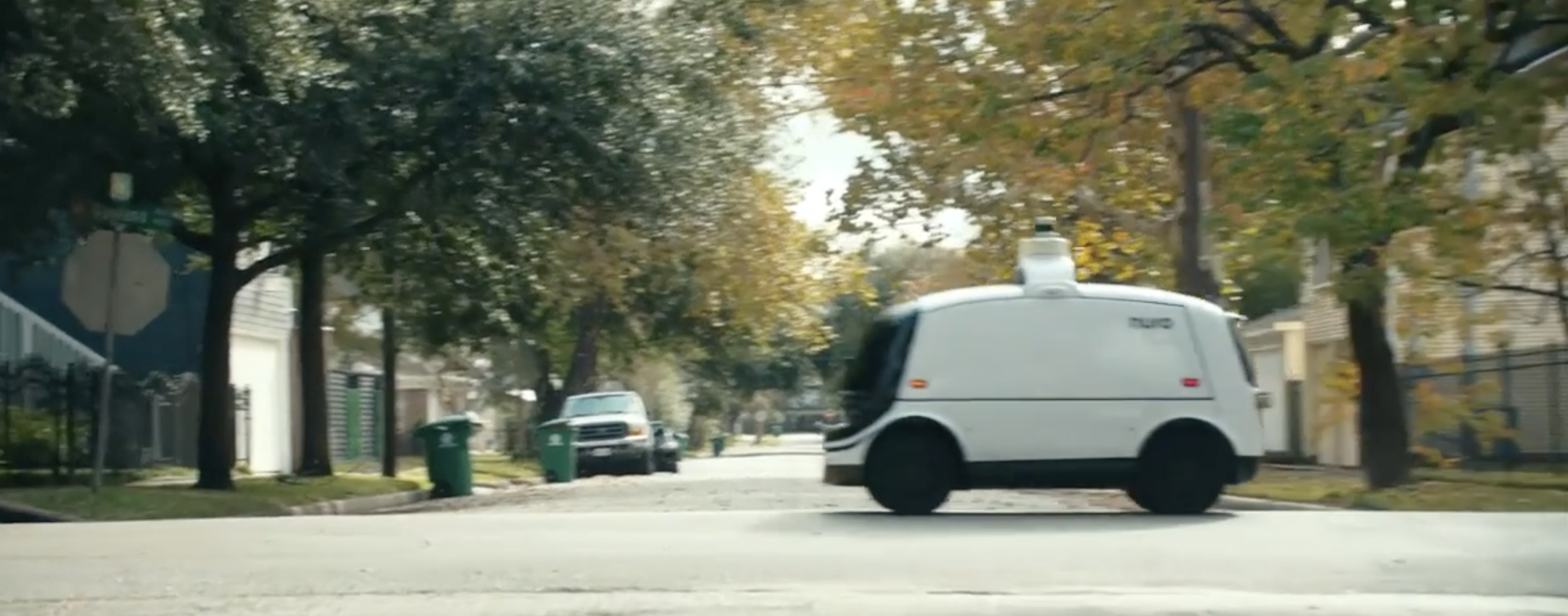Sign up for daily news updates from CleanTechnica on email. Or follow us on Google News!
Waymo, Cruise, Tesla, Baidu, Zoox — there are a handful of companies that get quite a big bulk of the attention when it comes to self-driving vehicle development. However, there’s another company that has been progressing nicely and often goes under the radar (no pun intended). That would be Nuro. But Nuro is going about things in a bit of a different way, which makes it all the more interesting.
Nuro is currently focused on delivery things, not people. In particular, it’s got a contract with Uber Eats and has been delivering food with some of its test vehicles, which have been Toyota Priuses up till now. There are custom-designed Nuro EVs, but we’ll get to that sticky issue in a moment.
Nuro’s hardware and software system is currently limited to driving no faster than 25 mph, so the vehicles have to stick to slower roads. However, it is aiming to raise that limit to 45 mph soon. “The R2 only drives up to 25 miles per hour. The R3 will technically be able to drive up to 45 miles per hour. We won’t necessarily deploy it at that speed on day one, but it enables us to do full L4 driverless testing, deployments, even commercialization over a much wider region, basically everything except freeways,” Nuro co-founder Dave Ferguson says.
A notable step forward for Nuro came a couple of weeks ago, when the California Department of Motor Vehicles (DMV) approved this third-generation autonomous delivery vehicle, the R3, for testing in Mountain View, Palo Alto, Los Altos, and Menlo Park — four Silicon Valley cities. Nuro’s cute little self-driving vehicles (pictured above) skip the extra work, costs, and space of seats, windows, steering wheels, and pedals. The R3 doesn’t need any of those. The space inside is for carrying things, not people, and that includes the aforementioned food. The partnership with Uber is a 10-year one that started in 2022. The Nuro vehicles include temperature-controlled storage units. Nuro also has partnerships with Domino’s, Walmart, FedEx, 7-Eleven, and Kroger.
“We’ve actually dramatically accelerated our autonomy progress and even the timeline around the autonomy side,” Ferguson added. “So that is the software, obviously, as well as the hardware, the sensing, the compute that’s tied to that autonomy software in a [Level 4] setting.”
It seems smart what Nuro has decided to start off with — delivering food and goods rather than people, starting on slower roads and gradually expanding into faster ones. As far as the AI progress, we have no real insight into that of course, but the vehicle can do what it can do.
Getting back to its R3 vehicles, though: Nuro partnered with BYD to have the Chinese EV giant build these, and the problem isn’t BYD’s capability to do so, but rather the new 100% tariffs on Chinese produced EVs. That has led to a pause in production and deliveries. Nuro did receive a few dozen of the new R3 autonomous cute-mobiles before everything got stalled, and the company will roll out those EVs in the California Bay Area and Houston, its other initial test market, in coming months. As far as a longer-term solution that will get Nuro more of these autonomous vehicles, it’s not clear what the plan is yet.
Of course, even with this snag in vehicle production put to the side, all is not roses and candy and Nuro. The company had raised $2 billion dollars — yes, billion. But as it used more and more of that cash without becoming a profitable business, it decided it grew too fast and then needed to cut costs. The company went through two rounds of layoffs in the last two years. Such is the nature of a hot startup in an overheated market.
Is Nuro just what the doctor ordered … for his Uber Eats delivery at lunch? Is it going to be able to scale up its AI driving and vehicle rollouts enough in the next few years to become profitable, or at least raise enough money to get to profitability in time? Or will it become another name in a long list of tech companies that inspired a lot of people, raised millions or billions of dollars, and then had to close its doors after not making enough money? Time will tell. But one thing is for sure: I’d love some of those cute little Nuro EVs in my neighborhood!
All images courtesy of Nuro.
Have a tip for CleanTechnica? Want to advertise? Want to suggest a guest for our CleanTech Talk podcast? Contact us here.
Latest CleanTechnica.TV Videos
CleanTechnica uses affiliate links. See our policy here.
CleanTechnica’s Comment Policy








